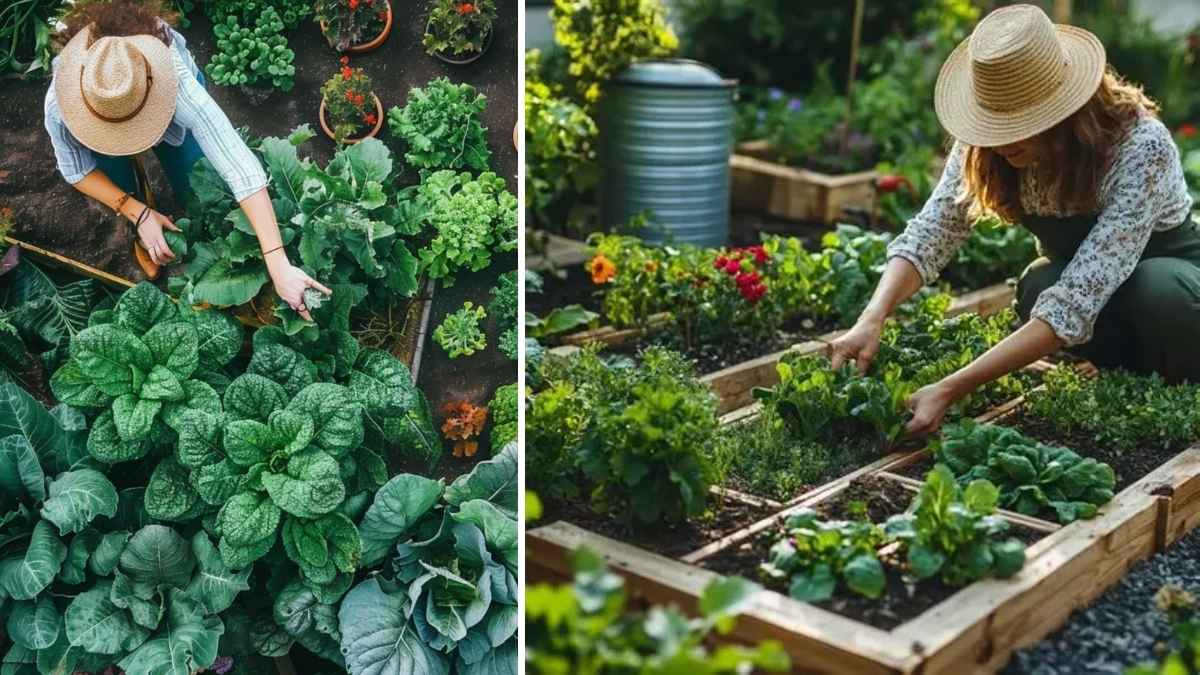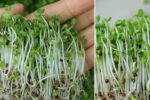The holiday season is a time for celebration, family gatherings, and joyful moments. But it’s also a time when waste generation tends to increase, from excess packaging to holiday-specific decorations. One effective way to make your holidays greener is by integrating sustainable gardening practices. Not only does sustainable gardening help reduce your environmental footprint, but it also transforms your outdoor space into a thriving, beautiful sanctuary. Here are eight practical tips to create a greener holiday garden.
1. Choose Native Plants
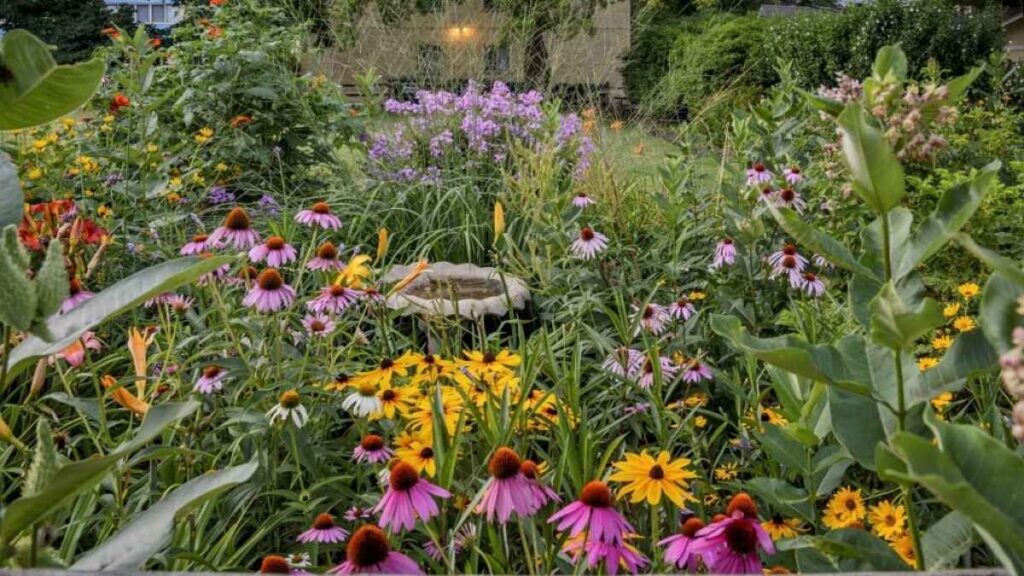
Native plants are naturally adapted to your local climate, soil, and weather patterns. Unlike non-native species, they require less water, fewer fertilizers, and minimal care. Planting native species can create a sustainable, low-maintenance garden that thrives throughout the year.
Some benefits of native plants include:
- Supporting local wildlife such as birds, bees, and butterflies.
- Reducing water usage as they are adapted to your region’s rainfall.
- Lowering the need for chemical fertilizers or pesticides.
Examples of native plants include coneflowers, milkweed, ferns, and local fruit trees. During the holiday season, native evergreens can add festive greenery without needing to import exotic species that may harm local ecosystems.
2. Reuse Holiday Decorations
Holiday decorations are often discarded after a few weeks, contributing to unnecessary waste. Instead, you can incorporate natural elements from your garden to create decorations that are both beautiful and sustainable.
Ideas for reusing garden elements include:
- Making wreaths and garlands using pinecones, branches, and holly.
- Drying flowers and leaves to craft natural ornaments.
- Using fallen twigs or branches to make rustic table centerpieces.
After the season, these items can be composted, ensuring nothing goes to waste. This approach is eco-friendly and adds a personal, handcrafted touch to your holiday décor.
3. Compost Food Scraps
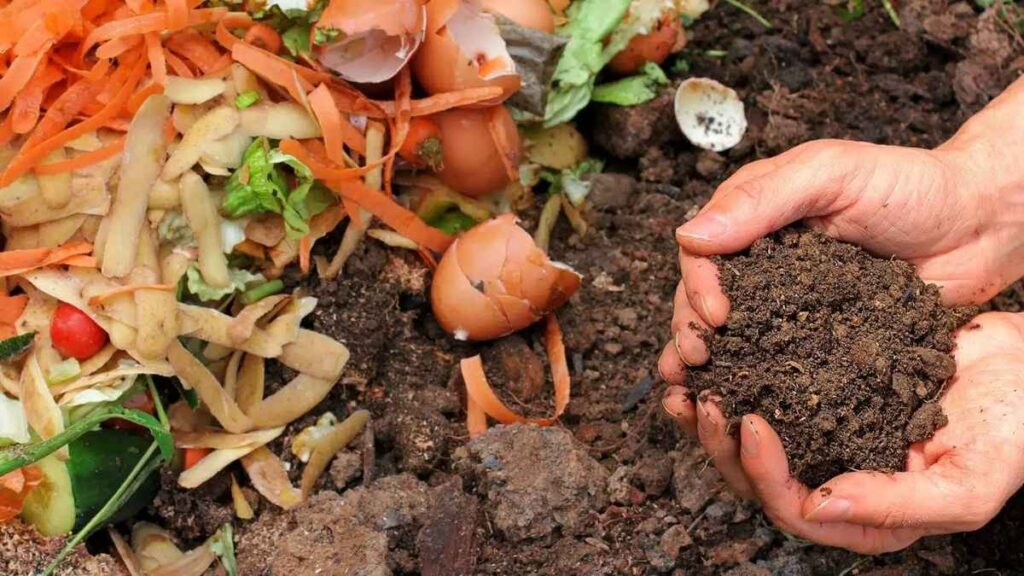
Composting is one of the simplest and most effective ways to reduce household waste while improving soil quality. During the holiday season, food waste often increases, from fruit peels to leftover meals.
You can compost:
- Vegetable and fruit scraps
- Coffee grounds and tea leaves
- Eggshells and nutshells
- Leftover holiday meal scraps (avoid meat or dairy in small home compost setups)
Composting not only reduces landfill waste but also produces nutrient-rich compost that can be used to enrich your garden soil. This helps your plants grow stronger and healthier while creating a closed-loop system where waste becomes nourishment.
4. Mulch for Moisture Retention
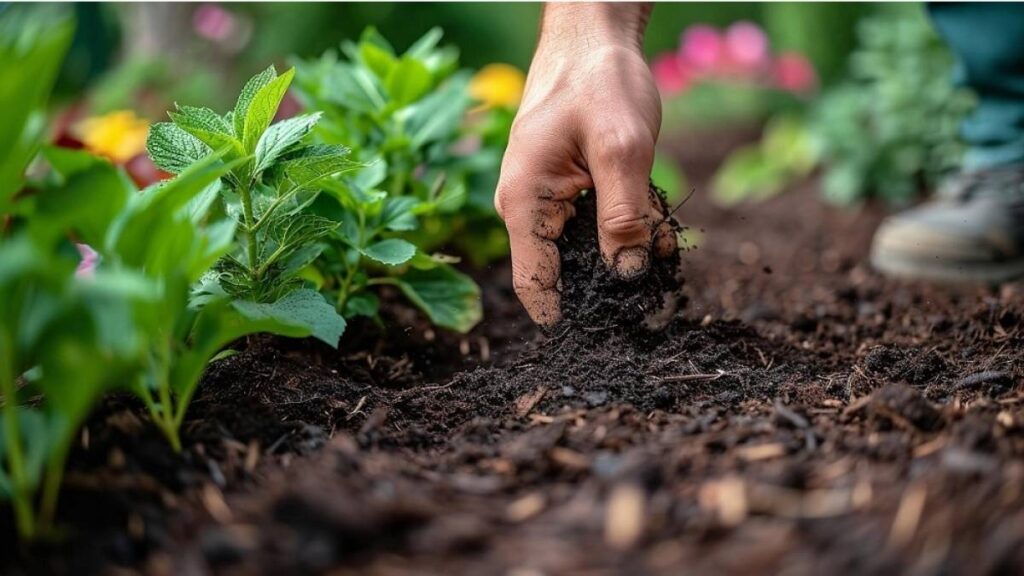
Winter can be harsh on plants, with freezing temperatures and dry soil conditions. Applying mulch around your plants helps protect them from extreme weather and reduces maintenance.
Benefits of mulching include:
- Retaining soil moisture and reducing the need for frequent watering.
- Controlling weeds naturally.
- Regulating soil temperature during cold months.
- Enriching the soil as organic mulch decomposes.
Suitable mulch materials include straw, shredded leaves, wood chips, or even shredded newspaper. During the holidays, adding mulch around trees and shrubs ensures they survive winter while reducing your environmental footprint.
5. Plant Seasonal Vegetables
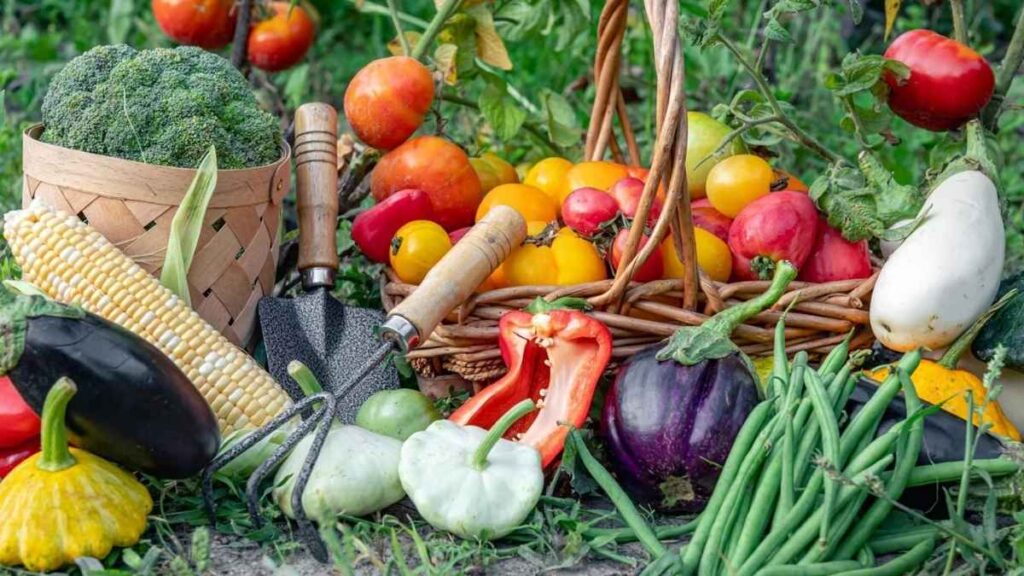
Gardening sustainably also means growing your own food whenever possible. Seasonal vegetables are an excellent choice for the winter months and can contribute to a more eco-friendly holiday.
Winter-friendly vegetables include:
- Kale
- Spinach
- Carrots
- Broccoli
- Cabbage
By growing seasonal produce, you reduce reliance on store-bought items, lower your carbon footprint, and enjoy fresh, nutritious food during holiday meals. Gardening your own vegetables can also be a fun family activity and a way to teach children about sustainable living.
6. Conserve Water
Water is a precious resource, and conserving it is crucial for sustainable gardening. Small changes in how you water your garden can lead to significant environmental benefits.
Ways to conserve water include:
- Installing rain barrels to collect runoff water.
- Using drip irrigation to target plant roots directly.
- Watering early in the morning or late in the evening to minimize evaporation.
- Mulching garden beds to retain moisture naturally.
By adopting these practices, you ensure that your garden remains healthy while using water efficiently, even during the holiday season when plants may need extra care.
7. Avoid Chemical Pesticides
Many conventional pesticides and herbicides can harm beneficial insects, contaminate the soil, and pose risks to humans and pets. Sustainable gardening encourages natural methods to keep pests in check.
Alternatives include:
- Using neem oil or insecticidal soap.
- Planting companion crops to repel pests naturally (e.g., basil near tomatoes).
- Encouraging pollinators and beneficial insects like ladybugs and lacewings.
- Handpicking pests when practical.
This approach protects your garden ecosystem, promotes biodiversity, and ensures a safer environment for children and pets during the holidays.
8. Give Plants as Gifts
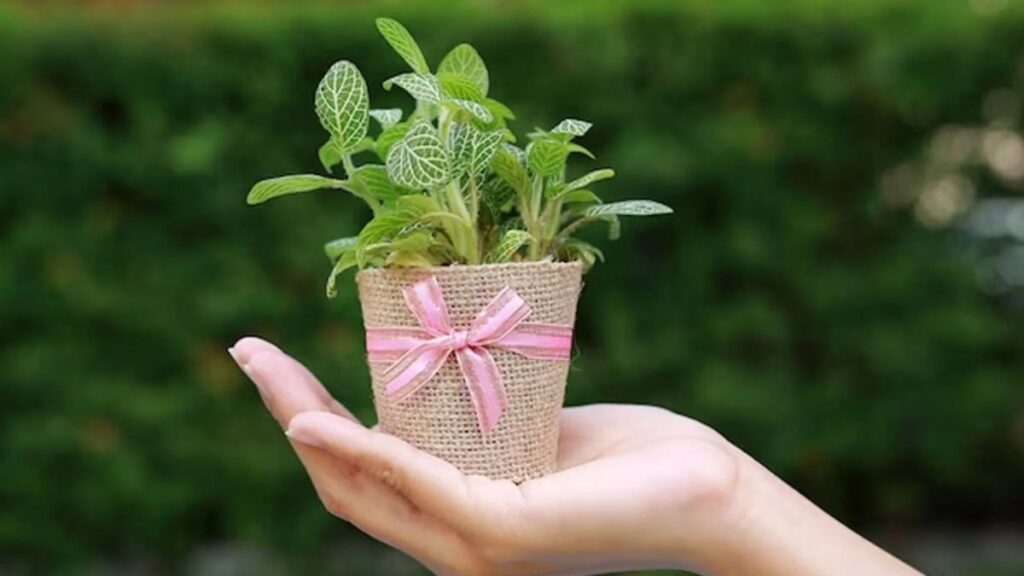
Traditional holiday gifts often come with excessive packaging and plastic waste. Choosing plants or gardening-related gifts is a sustainable and thoughtful alternative.
Ideas include:
- Small potted plants or succulents.
- Herb garden kits.
- Seed packets for flowers or vegetables.
- DIY garden kits with soil, seeds, and containers.
These gifts encourage loved ones to engage with nature while reducing environmental impact. A living plant is a gift that keeps giving, bringing joy and greenery long after the holiday season ends.
Additional Tips for a Sustainable Holiday Garden
To further enhance your eco-friendly gardening practices, consider these extra tips:
- Use LED lights for outdoor holiday decorations to save energy.
- Collect fallen leaves to create natural compost or mulch.
- Opt for reusable plant pots instead of single-use plastic containers.
- Create a winter bird-friendly garden by providing seeds and water for local birds.
Conclusion
Sustainable gardening during the holiday season is about making mindful choices that benefit both your garden and the planet. From planting native species to composting leftovers, every small action contributes to a greener holiday. By incorporating these eight tips, you can celebrate responsibly, reduce waste, and cultivate a beautiful garden that thrives throughout the year. Sustainable gardening is not just an environmentally conscious choice it’s a way to create lasting joy for yourself, your family, and future generations.
By embracing these practices, you’re not only creating a more eco-friendly holiday but also fostering a deeper connection with nature. Each step, no matter how small, adds up to a significant positive impact, making your garden a true symbol of holiday cheer and sustainability.

